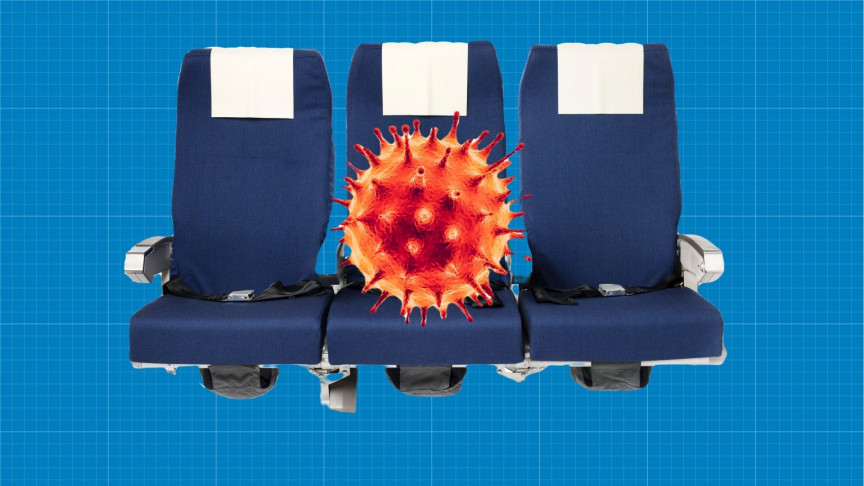This post may refer to COVID-19
To access official information about the coronavirus, access CDC - Centers for Disease Control and Prevention.

interestingengineering.com
CDC Study Shows the Importance of Middle Seats in COVID-19 Transmission
A study by the CDC finds that blocking middle seats in two-rowed airplane seat configurations minimizes exposure to the coronavirus.
Travel
Most airlines are no longer blocking middle seats but CDC data suggests that's not a good idea.
The effects of COVID-19 on the travel industry have been widespread and disruptive. People worldwide have been asked to only travel when it's essential, as remaining six feet (1.5 to 2 meters) away from others proves tricky when crammed elbow to elbow on a plane.
Now, a CDC study points out that blocking middle seats on planes minimizes the risk of COVID-19 exposure. This news doesn't bode well for airlines that are trying to stay afloat by booking flights to their fullest, but if lives are at stake, shouldn't we take heed of the CDC's news? Some might say, we're stuck between a rock and a hard place.
How do we fly safely during COVID-19?
The study, assisted by Kansas State University researchers, found that the risk of passengers coming into contact with the coronavirus dropped by 23 percent to 57 percent when middle seats on planes were blocked.
Its conclusion was clear: "Based on a data-driven model, approaches to physical distancing, including keeping middle seats vacant, could reduce exposure to SARS-CoV-2 on aircraft."
It has to be noted, though, that the research was carried out in a laboratory setting, and the researchers explained that these percentages could vary slightly in a real-world setting.
The study, in fact, supports what some airlines did at the start of the pandemic: blocking out middle seats. However, that trend didn't last very long, with most airlines entirely booking out flights, and now the last standing airline, Delta, announced it would once again be selling all seats on its planes from May 1.
Many airlines have argued that airplane air filtration systems are strong enough to dissipate air quickly, keeping customers safe from viruses, especially when wearing a face mask.
Some companies jumped on the air filtration bandwagon by developing even stronger air filtration systems for planes that act like a defense shield for each seated passenger. That said, these didn't really pick up and airlines just kept their regular, strong air-flow systems.
Aside from providing clean air, airlines have also been stringent with sanitizing planes more regularly and carefully, requiring passengers to wear face masks at all times, and requiring negative COVID-19 tests ahead of flying.
It's a tricky space to be in, and perhaps the only answer lies in vaccinating more people before they fly. However, that poses another contentious debate in itself.
It seems there may be no perfect answer to the flying discussion. The bottom line may be to keep traveling only when it's strictly necessary, and then, by following all the safety precautions airlines have currently instated.
Although, we have to admit, flying with an extra seat between passengers does sound more appealing than fighting over the armrest with a stranger.
























































